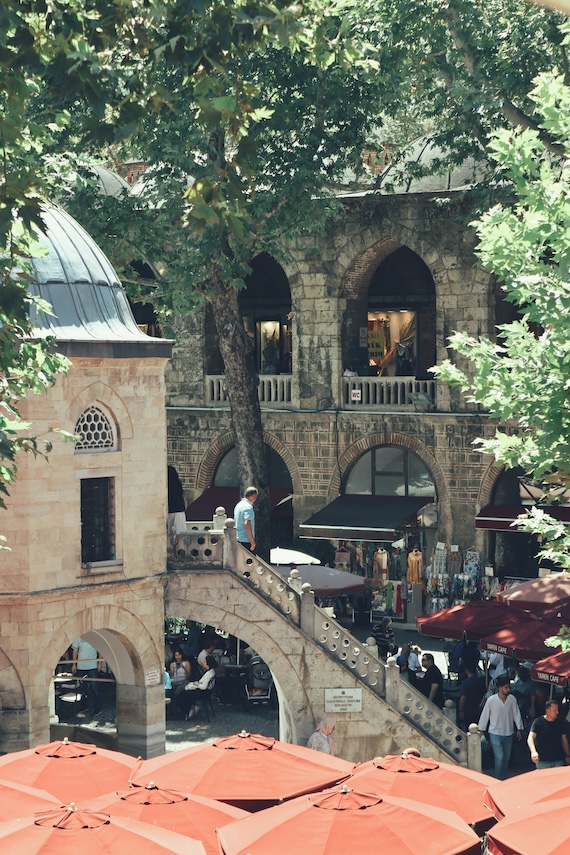Ann Arbor (Informed Comment) – Türkiye is facing “apocalyptic” wildfires according to one official in the northwest Bursa region. Temperatures in central Anatolia hit an unusual 108.32º F [42.4º C.]. But the record-breaking temperature was recorded in the southeastern town of Silopi — of 122.9º F. [50.5º C.] — in the largely Kurdish Şırnak province. Although the very highest temperatures were elsewhere, it was so hot and dry in northwestern Turkey south of Istanbul that massive fires broke out at Bursa and elsewhere in that region, causing thousands of people to flee their homes. Greece and Albania, which are also seeing heightened temperatures and dryness, are also facing a wildfire epidemic.
The globe is heating up because we burn gasoline in our cars and produce electricity and heat with coal and fossil gas. The rate of increase in temperatures is not spread evenly across the world, however. The arctic is heating up at four times the global average, and the Middle East is heating up at twice the global average.
While a hotter Sahara region does not pose a huge threat, since it is denuded of trees and is very thinly populated, higher temperatures and more drought in places like Syria, Lebanon, Israel and Turkiye produce wildfires in forests. Turkiye gets enough rainfall to have big forests, and so is, like California and Greece, especially vulnerable.
High winds have whipped up the fires, and there are now four big conflagrations in three provinces, including Bursa Kestel, Bursa Harmancık, Karabük Safranbolu and Kahramanmaraş. Some 3,500 persons have been evacuated from six neighborhoods in and around Bursa. The government has deployed helicopters and planes to drop water on the fires. Dozens of houses and apartment buildings have been damaged.
Türkiye officials say that they have struggled with 84 wildfires this year and expect to be on alert through October.
Türkiye is more advanced than the United States in this field, given that its head of state does not mouth nonsense about sweeping the forest floor as a means of preventing fires. And it even has a Provincial Directorate of Environment, Urbanization and Climate Change
Minister of Agriculture and Forestry İbrahim Yumaklı said, “Months ago, we started to say that climate change [iklim değişikliği]-related conditions and global warming [küresel ısınmanın] would pose for us a very difficult test in every sphere. In countries like us in the Mediterranean region, you see similar problems as we do.”

File photo of Bursa,Türkiye by Gamze Şentürk on Unsplash
A recent paper on wildfires and climate change in Nature that looked at climate changes in the Mediterranean part of Türkiye over two time periods (1961–1990 and 1994–2023) saw a clear trend of warming and drying. In other words, the authors found, temperatures went up and rainfall went down when they compared the 30-year averages of temperature and precipitation. Over the long term, they say, there was a very small drop in rainfall — about 0.1%. They found that average nighttime temperatures rose by about 0.9°F to 2.7°F (0.5°C to 1.5°C), while the highest daytime temperatures went up by around 0.8°F to 3.1°F (0.47°C to 1.72°C). So, more heat and slightly less rainfall. That equals more wildfires and more severe ones. And it is only beginning.
Unlike our backward white Christian officials who routinely deny the existence of climate change and global heating in the United States, the Turkish Muslim Minister Yumaklı has no doubt about why such wildfires are multiplying in frequency and severity in his country. Sweeping the forest floor didn’t come up even once. President Erdogan isn’t moving fast enough on greening Turkiye’s grid, but he has pledged considerable increases in wind and solar power production, whereas our old orange lunatic is kneecapping those power sources.
One thing all Mediterranean countries should do is to plant stands of Mediterranean cypress, which are at least somewhat resistant to wildfires because of their high internal water storage, as firewalls among other more combustible kinds of trees.


 © 2025 All Rights Reserved
© 2025 All Rights Reserved